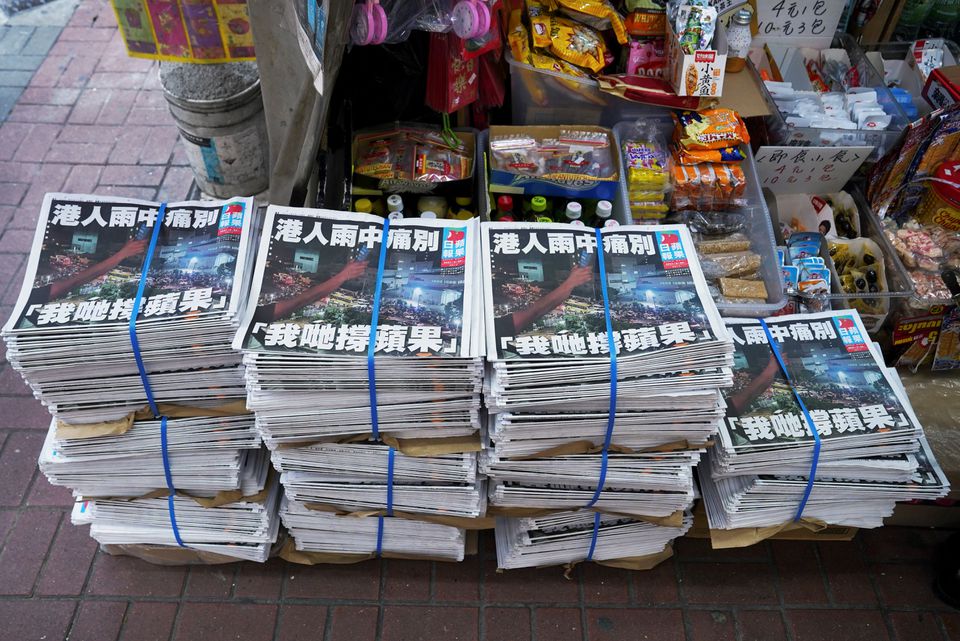Image: Copies of the final edition of Apple Daily, published by Next Digital, are seen at a newsstand in Hong Kong, China June 24, 2021. REUTERS/Lam Yik
HONG KONG, June 24 (Reuters) – Hong Kong cyber activists are backing up articles by pro-democracy tabloid Apple Daily on censorship-proof blockchain platforms after the newspaper was forced to shut down as it became embroiled in a national security law crackdown.
The latest drive to preserve the paper’s content comes after activists rushed to upload documentaries by local broadcaster RTHK investigating people in power after the media outlet said it would remove materials older than one year from its social media platforms.
Under the national security law, the Hong Kong government can request the blocking or removal of content it deems subversive or secessionist, raising fears over internet freedom in the global financial hub.
The Hong Kong government says use of the internet will not be affected so long as its use is within the law.
This year, the company that approves internet domains in Hong Kong said it would reject any sites that could incite “illegal acts”. Internet service provider Hong Kong Broadband Network (HKBN) said it had blocked access to HKChronicles, a website offering information about anti-government protests.
Fearing the security law could bring elements of China’s great firewall to Hong Kong, limiting access to dissenting views, 21-year-old Ho – who works in tech and did not give his first name because of the sensitivity of the matter – began this week to upload Apple Daily articles on decentralised file storage platform ARWeave.
After midnight, as the printers ran one final time, Apple Daily shut off its website and erased all its social media platforms after authorities froze company-related assets as part of a national security probe.
“I’m not doing this because I love Apple Daily, it’s what needs to be done,” Ho said. “I never thought that Apple Daily would disappear so quickly.”
Police froze assets of companies linked to Apple Daily and arrested five executives last week, moves that led to the newspaper printing its final edition on Thursday.
Authorities have said dozens of Apple Daily articles may have violated the security law, but there was no suggestion that Apple Daily content would be blocked or censored.
Similar to BitTorrent, ARWeave breaks down a file into bits of information distributed over an open network of anonymous computers around the world. On its website, it describes itself as a “collectively owned hard drive that never forgets.”
As of Thursday, more than 4,000 Apple Daily articles had been uploaded on ARWeave. Hundreds of RTHK programmes dating back to 2012 are also available.
Another programmer, Kin Ko, 47, has been building a decentralised registry called LikeCoin. The blockchain platform helps internet users identify the metadata – creator, date, time, location, version – of the content through a unique number called an International Standard Content Number (ISCN), akin to a book’s distinctive International Standard Book Number.
Any changes made to the content would be known and tracked through changes to its digital fingerprint.
The digital repository is still in its beta phase and months away from launching officially. But online pro-democracy outlet Citizen News told Reuters its has already used LikeCoin to catalogue its images.
Ko’s initial idea was to create a platform that could authenticate any type of content, and did not expect his platform to be embraced so enthusiastically by pro-democracy activists.
But, he said: “History must not be determined by those in power.”
